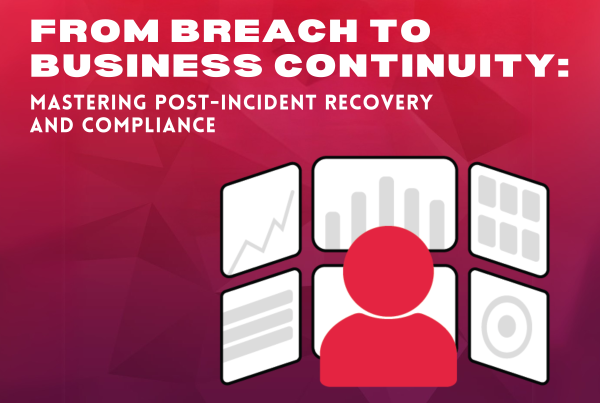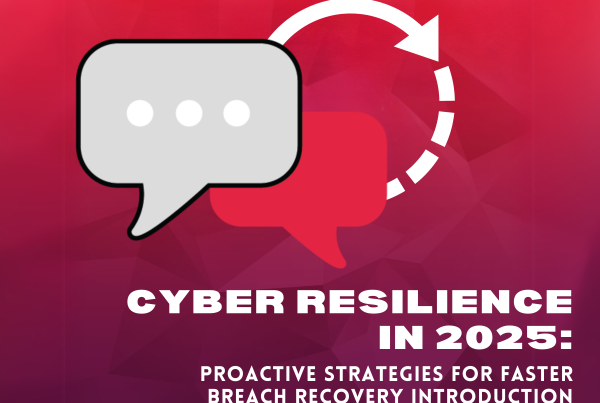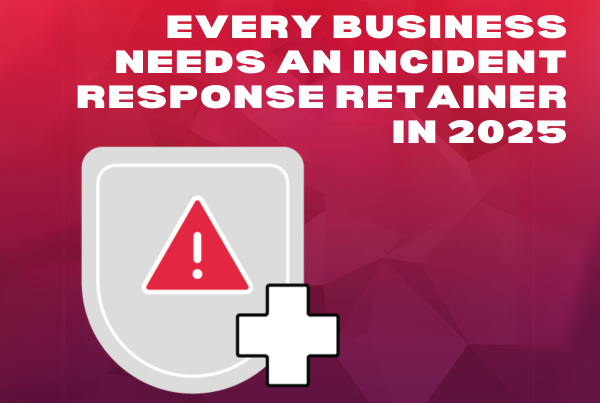With the new year finally here, it’s time to set new cybersecurity resolutions to boost your online safety. 2021 was a great but terrifying year for cybersecurity. Last year, the cost of a data breach reached its highest average in 17 years, costing an annual average of $4.24M—previously at $3.86M. With the shift of work environment due to COVID-19, threat actors found other ways to compromise systems and accounts, impacting the cost of data breaches.
Cyberattacks like phishing, malware, ransomware, and more have increased in frequency and sophistication. In particular, ransomware has been a favorite amongst threat actors to carry out attacks on unsuspecting victims. Multiple large-scale enterprises like Colonial Pipeline and JBS Foods have been hit by international ransomware groups, losing millions of dollars as a result. Experts predict that threats will only increase as time goes on, making it even more crucial for users to strengthen their line of defense.
Resolutions to make this 2022
A resolution is a step towards creating good practices. During this time of the year, people work towards creating a healthier lifestyle or abstaining from alcoholic drinks for the betterment of their bodies. But the same goes with cybersecurity. According to statistics, the majority of breaches are due to human error. With the constant threats present, users must develop great cybersecurity practices to reduce the likelihood of a breach.
Here are some resolutions to make to boost your security:
-
Keep up with the updates
People don’t realize the importance of updating devices, software and even, passwords. As mentioned earlier, the main reasons breaches occur are due to human error. According to experts, there are about 23 million accounts present that still use “123456” as their passwords. It just goes to show that users do not understand the potential damage threat actors can cause due to poor cybersecurity practices. For many accounts, a password is the first line of defense. By creating a strong password and updating it regularly, you can strengthen your security.
Another great way to protect yourself is by updating software and devices when an update is available. Though it can be an annoying task, updates are necessary to protect yourself from potential attacks by patching up vulnerabilities of outdated software. So, check your devices or software for any software updates to keep up your safety.
-
Regularly back up your data
Data backups are copies of your important information that is stored in devices to restore original information in case of a data loss. There are many forms of data losses such as human error, theft, and attacks. Cyberattacks such as ransomware can encrypt and delete a victim’s important information if desired. But by backing up files regularly, you can protect and save your important documents from these events. It is recommended to regularly schedule data backups and create multiple copies in physical and digital locations.
-
Keep things private
Sometimes, people forget that the internet can be a dangerous place. Platforms such as Facebook and Instagram make users feel safe in their accounts but sharing too much can lead to devastating consequences. Social media platforms are not as safe as we think and are used by threat actors to steal private information about victims that they can use against them. By setting boundaries for social media, you can keep your privacy and safety. Always think before you post because some things are best kept private.
-
Be more cautious
With all the threats and dangers that are circling the web, it’s always best to be cautious. Cyber-attacks have evolved in recent years, making it harder for users to detect them. Phishing attacks, a social engineering cyber-attack, contributed to 36% of breaches this past year. It’s a type of attack that manipulates a user’s judgment and emotions to trick them into revealing private information. Commonly, emails are used to carry out phishing schemes but have evolved into other forms such as text messages and calls.
It’s important to always be careful when coming across suspicious emails. If you have even the slightest doubt, it’s best to not click, download or engage with the said email to avoid any type of attack.
-
Spread awareness
Educating yourself and others about common threats is crucial to fighting against malicious intent. Many experts believe that cybersecurity awareness is the key to significantly reducing the likelihood of a breach. However, companies still overlook the importance of proper cybersecurity training. To protect yourself and others, make it a priority to learn and understand the basics of cybersecurity to help strengthen your defense against threats and attacks.
In Summary
Make cybersecurity one of your priorities this 2022. As technology evolves, so do the attacks and threats of hackers. Users and companies need to be one step ahead to avoid being a victim of a cyberattack. So, start the year right and create a safer online environment today.
About IPV Network
Since 2016, IPV Network has been a trusted partner of leading enterprises in the Philippines. It brings the best-of-breed cybersecurity solutions. IPV network helps businesses identify, protect, detect, respond, and recover from cyber threats. Email us at [email protected] or call (02) 8564 0626 to get your FREE cybersecurity posture assessment!
References:
Sayegh, Emil. “Predicting What 2022 Holds For Cybersecurity.” Forbes, 7 Jan. 2022, www.forbes.com/sites/emilsayegh/2022/01/06/predicting-what-2022-holds-for-cybersecurity/?sh=6aac5eeb2b72.
Owaida, Amer, and Amer Owaida. “22 Cybersecurity Statistics to Know for 2022.” WeLiveSecurity, 31 Dec. 2021, www.welivesecurity.com/2021/12/30/22-cybersecurity-statistics-know-2022.
Hoseck, Nicky. “Cyber Security New Year’s Resolutions for 2021.” Secure Thoughts, 21 May 2021, securethoughts.com/cyber-security-new-years-resolutions.
Touro College. “The 10 Biggest Ransomware Attacks of 2021.” Touro College Illinois, 12 Nov. 2021, illinois.touro.edu/news/the-10-biggest-ransomware-attacks-of-2021.php.


